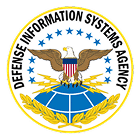When people hear “Public Benefit Corporation,” they usually don’t know exactly what it means or why it’s important. For us, it’s not a branding exercise or a feel-good tagline—it’s a deliberate choice to structure our company in a way that aligns business success with mission outcomes.
Why does this matter? Because securing the free world isn’t getting any easier. Authoritarian regimes are investing in and deploying technologies to challenge the U.S. and her allies, threats are evolving faster than policy, and bureaucratic inertia still slows the adoption of critical national security technologies. If we’re going to maintain global advantage, we need to increase velocity and decrease costs while pursuing outsized impact.
But being a PBC isn’t just about moving fast—it’s about ensuring that our work directly correlates to mission impact and success. We see success when our customers and their customers are winning. When more technology is available to more users across the global national security enterprise. That success requires collaboration across capital allocators, governments, and the private sector to ensure that the best technologies are available to mission critical operations when and where they are required.
What It Means to Be a Public Benefit Corporation
A PBC is a corporate structure that requires businesses to pursue both profit and a stated public benefit. Unlike traditional corporations, which are legally required to maximize shareholder returns, PBCs balance financial performance with broader mission success.
For us, that mission is clear: accelerate the adoption of vital technology for national security. Technology acquisition is slow. Bureaucracy is entrenched. Traditional pathways for getting software into the hands of those who need it aren’t just outdated—they’re a liability. Our job is to challenge the status quo. But we don’t do it alone. Our customers—government agencies, software vendors, and technology adopters are the ones driving real change, and we’re here to make it possible.
Mission Over Everything
At its core, being a PBC means we don’t just build for the sake of building. We build because national security demands it.
Technology is a force multiplier, but only if it’s accessible, secure, and deployed at the speed of relevance. The U.S. and her allies are in a fight where software and data aren’t just support functions—they’re strategic advantages. If we fail to harness the power of commercial industry and technology for national security we will lose.
That’s why we focus on enabling the people making real-world decisions—warfighters, infrastructure and mission owners, operators—to securely leverage the best technology without being hindered by outdated processes. Our platforms and partnerships are designed to reduce friction, increase speed, and ensure that the most advanced tools are in the right hands at the right time.
Innovation Without the Bottlenecks
National security innovation isn’t about buzz words and sticky notes—it’s about delivery. The best ideas and tools in the world are useless if they can’t be leveraged when and where the mission demands.
That’s where we focus. Second Front is building the infrastructure that allows national security organizations to adopt, deploy, and scale secure software at the speed of mission. This isn’t just about streamlining a process—it’s about ensuring that those responsible for securing the free world can confidently depend on the best technology available.
But we don’t do this in a vacuum. The companies, agencies, and organizations we work with are all part of this larger mission. Our success is their success, and vice versa. The only way to advance national security is through collaboration between industry, government, and private capital because innovation moves at the speed of trust.
The Road Ahead
Yes, we want to build a strong, durable business, but being a Public Benefit Corporation is our commitment to never losing sight of the broader mission. And that mission is only possible with the right partners.
We’re here to challenge outdated systems, work alongside the best in the industry, and ensure that those defending the free world aren’t stuck fighting tomorrow’s battles with yesterday’s (or last year’s) tools.
If you’re an innovator, operator, entrepreneur, or policymaker who shares that mindset, let’s work together. Because national security isn’t someone else’s problem—it’s all of ours.
Your success is our mission.








